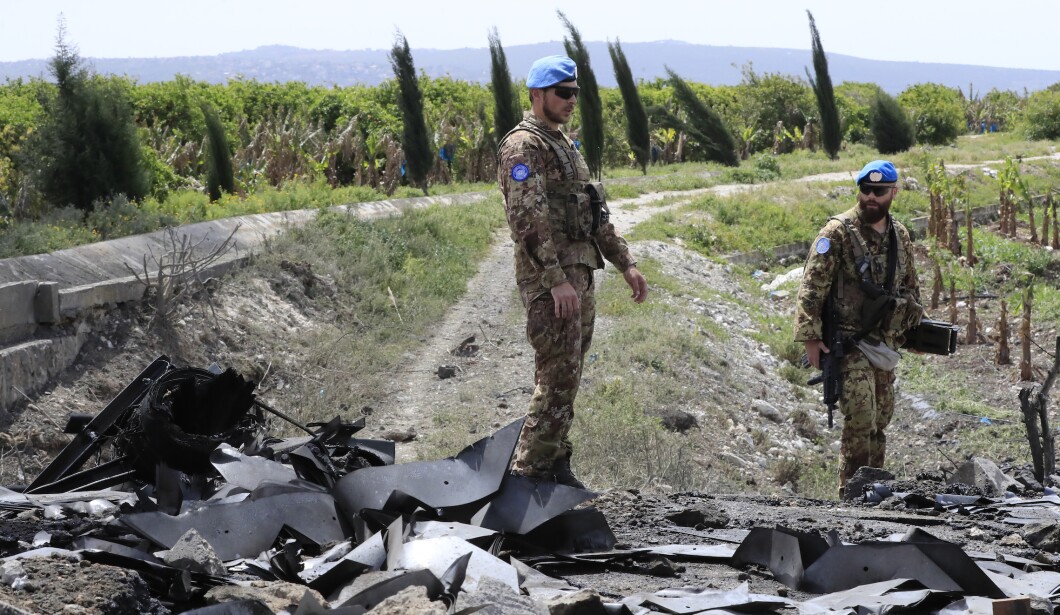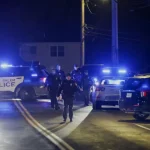
Iran-backed terrorist organizations should “not draw false conclusions” about Israel’s military clout, according to a top general, despite weeks of political unrest in the Jewish state.
“I suggest our enemies not draw false conclusions about us,” Israel Defense Forces chief of staff Herzi Halevi said Friday. “Both during the holidays and during times of internal public debate, the IDF is prepared, ready, and determined to provide security to the citizens of the state of Israel.”
TURKEY’S ERDOGAN ALIGNS WITH IRAN AGAINST ISRAEL’S ‘ATTACKS’
Israeli forces struck positions in Gaza and southern Lebanon late Thursday in retaliation for a rocket barrage that Israeli officials attributed to the Palestinian terrorist organization Hamas. The violence threatens to vindicate the anxieties of Israeli security officials who have watched with alarm as a right-wing push to overhaul the Israeli judiciary sparked a political uproar that inspired military reservists to protest and opened a rift between Israeli Prime Minister Benjamin Netanyahu and Israeli Defense Minister Yoav Gallant — to the delight of Tehran.
“The Zionist regime has political instability. … There is an extreme bipolarity throughout the fake regime, which is highlighted by the demonstrations of hundreds of thousands of people in some cities,” Iranian Supreme Leader Ayatollah Ali Khamenei said this week. “It is not possible for them to try to make up for these weaknesses by firing a few rockets. … We had mentioned [in 2015] that the Zionist regime would not see 25 years from then, but it seems as though they themselves are in a rush and want to leave sooner.”
His triumphalist gloating hangs over the tensions simmering in Jerusalem and on Israel’s borders. Iran supports both Hezbollah and Hamas and has conducted military operations in support of Syrian dictator Bashar Assad for years.
Israel’s bombardment of Hamas occurred against a backdrop of clashes at Al Aqsa Mosque, Israeli airstrikes against Iranian positions in Syria, and a recent roadside bombing near Megiddo reportedly perpetrated by a Lebanon-based Hezbollah operative. Hezbollah leaders celebrated the Megiddo attack without claiming responsibility for it.
“Our silence is part of the political, media, military, and psychological battle with the enemy,” Hezbollah chief Hassan Nasrallah said last month. “Any Zionist attack on Lebanon, military or security, in any region and against any person in Lebanon, whether he is Lebanese or Palestinian or of another nationality, will be met with a swift response from the resistance.”

So the Israeli strike in Lebanon has put the region on tenterhooks. Hezbollah has a vast stockpile of rockets, including some precision-guided munitions, that render the Lebanese militants a far more dangerous foe than the Gaza-based militants who faced off with Israel for 11 days in 2021.
“Israel has to respond, and there is significant concern that it could trip a wire that leads to what could be the ugliest war in recent memory in the Middle East,” Foundation for Defense of Democracy Senior Vice President Jonathan Schanzer told the Washington Examiner. “This is, I would say, overshadowing all of the drama that we saw unfolding on the streets of Tel Aviv last week and in weeks prior. All of the political considerations, I think, are in the rear view, at least for now, as a result of … what is increasingly viewed as a dire security challenge.”
The tension startled international observers. “France calls on all the parties to show maximum restraint and to refrain from any actions that might escalate the situation,” a French Foreign Ministry spokesperson said Friday. “We reiterate our strong condemnation of the indiscriminate rocket strikes against Israeli territory from Gaza and South Lebanon. France reaffirms its unwavering commitment to Israel’s security and Lebanon’s stability and sovereignty.”
The security crisis forced Netanyahu and Gallant into a show of unity after weeks of acrimony stemming from the judicial overhaul. Netanyahu announced the defense chief’s ouster last month after Gallant warned that the judicial reform dispute “is penetrating the IDF and security agencies” and weakening Israeli security.
“For this challenge as well, we are standing united, unified, sure of our righteousness, and we will act together with total backing for our forces,” Netanyahu said this week.
Yet the ultranationalist members of Netanyahu’s government, including the far-right champions of the judicial reform bill, adopted a more fractious tone by critiquing Netanyahu’s response and blaming the crisis on their political opponents.
“With all its shortcomings, it is 1,000 times better and more responsible than the previous government,” Israeli National Security Minister Itamar Ben Gvir said. “Even when their hands are not at the wheel, they continue to do harm. Their messages have undoubtedly encouraged our enemies to start a military conflict against us.”
Ben Gvir’s closest ally in the government, Israeli Finance Minister Belazel Smotrich, likewise said he tries “very hard to be loyal to outward appearances and not attack the government I am a member of, but it can’t continue like this.”
Their public criticism at this juncture reportedly has given Netanyahu and his archrivals something they can agree about — their irritation with the ultranationalist ministers. Netanyahu’s team is “furious with Ben Gvir and Smotrich, and say the two are hurting Israel’s deterrence due to political considerations,” according to Israeli media. Former Israeli Defense Minister Benny Gantz, one of the top opposition leaders, offered the same rebuke in public.
“There has never been a Cabinet minister who spoke so much about security and understood so little,” Gantz, a retired general, said. “There has never been a Cabinet minister who, when rockets are being fired at our citizens, and our daughters are being killed on the roads, chooses to undermine the cohesion of Israeli society and harm our deterrent capability.”
CLICK HERE TO READ MORE FROM THE WASHINGTON EXAMINER
Netanyahu’s team reportedly is trying to target Hamas without stumbling into a clash with Hezbollah. Yet the attack from Lebanon renews a persistent dilemma for Israeli security officials, according to Schanzer, as Iranian leaders celebrate the growing strength of their proxies around Israel.
“They are testing Israel’s resolve — they’re probing to see whether the conditions are such that their battle plan might be back with success,” Schanzer said. “And I think the Israelis are actively looking and trying to determine whether this is their window [to degrade Hezbollah]. And this is why we are, in my view, on the precipice of what could be the ugliest war in the Middle East that we have seen in decades.”





